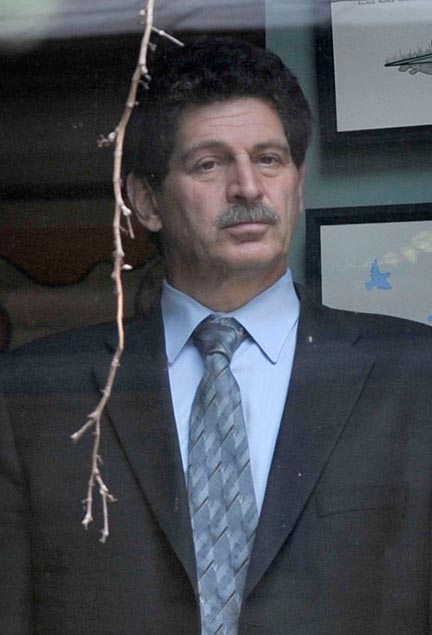The Ontario Court of Appeal’s decision in
R. v. Liard will be “a game changer” in how lawyers advise clients following their arrest, a Toronto criminal lawyer says.

Yesterday, the court
upheld a lower court’s decision to admit exculpatory statements made by the defendant, Michelle Liard, when police first accused her of plotting the murder of a 13-year-old Aleksandra Firgan-Hewie with her boyfriend in 2008.
Lawyer Dan Brodsky, one of Liard’s defence counsel, says his general rule is to tell clients to exercise their right to remain silent when being interrogated by police. That’s because while incriminating statements can be used against the accused later in court, the general rule is the accused cannot “bootstrap” their testimony with consistent statements they made to police, says Brodsky.
“If Michelle Liard had exercised her right to remain silent, she may not have prevailed at the trial,” he says.
He adds: “Now when somebody calls and says, ‘I’m innocent, I’m innocent, I’m innocent,’ you may well decide in the circumstances of the case to say to the client, ‘I’m going to put the phone down, you go tell that to the police and make sure they’re videotaping it.’”
Liard’s boyfriend Rafal Lasota stabbed and slashed Firgan-Hewie to death in his bedroom in 2008. Liard, who was 19 at the time, was in the home, but not in the bedroom when the murder took place. She was acquitted of first-degree murder in 2012
At trial, Liard said she was in a state of shock when she found out Lasota killed Firgan-Hewie, and admitted to washing blood-stained clothing and lying to Lasota’s sister that Firgan-Hewie was OK and had gone home. She wanted to hide the murder because she loved Lasota, said Liard, but denied ever planning the killing with him.
Superior Court Justice David Corbett found Liard’s videotaped statements to police, in which she asserted her innocence, depicted the “real Michelle Liard” more so than her testimony in court and entered the footage into evidence.
Brodsky says the key wasn’t so much what Liard said during the interview but her demeanor while being interrogated.
“What the person says is less important than how they said it and what the jury can see about the state of mind of the person saying it,” he adds.
The exception to the rule of excluding exculpatory statements made outside of court existed before Liard, but Brodsky says the Court of Appeal’s decision makes it easier to meet the test for that exception.
To put into evidence a previous exculpatory statement, an accused must meet three requirements: The accused must testify, the statement must be made when the accused was arrested or when first accused of committing a crime, and the statement must be spontaneous.
In Liard, the Crown argued the accused did not meet the second and third requirements. The videotaped police interview is not the first time Liard was accused of the crime, the prosecutors said, arguing she was first confronted by Lasota’s sister and mother.
The Court of Appeal disagreed. Lasota’s sister and mother had asked what had happened instead of confronting Liard with an accusation, appeal court Justice John Laskin wrote.
The Crown also argued Liard’s response during her interview with police wasn’t spontaneous since 13 hours had passed since the murder and Liard had already written a note to her grandmother about what happened, something the Crown said shows she had a chance “to think things through” before the police interview.
Again, the court disagreed.
“The trial judge expressly considered the gap of 13 hours between the time Lasota killed Aleksandra and the time Liard began her police interview, and he expressly considered that before her interview Liard had a chance to ‘think things through’ and write a self-serving note to her grandmother,” Laskin said.
“Yet the trial judge found Liard’s reaction during his police interview, and particularly to the charge of murder, to be spontaneous. That was a reasonable finding and is supported by several considerations.”
Those considerations include the fact the trial judge had the advantage of watching Liard’s trial testimony and comparing it to her police interview, the court said.
Initially, police interviewed Liard as a witness before accusing her of a crime later in the interview. Part of the Crown’s argument was if the video statements are admissible, only the portion of the statements that show Liard’s reaction after being accused of the crime should be entered into evidence. The court, however, felt context was important for jthe jury.
Brodsky says it’s likely that wrongful conviction inquiries and the reports that follow have altered “the judicial consciousness” around the importance of exculpatory statements made by individuals when they’re first accused of a crime.

 Yesterday, the court upheld a lower court’s decision to admit exculpatory statements made by the defendant, Michelle Liard, when police first accused her of plotting the murder of a 13-year-old Aleksandra Firgan-Hewie with her boyfriend in 2008.
Yesterday, the court upheld a lower court’s decision to admit exculpatory statements made by the defendant, Michelle Liard, when police first accused her of plotting the murder of a 13-year-old Aleksandra Firgan-Hewie with her boyfriend in 2008.